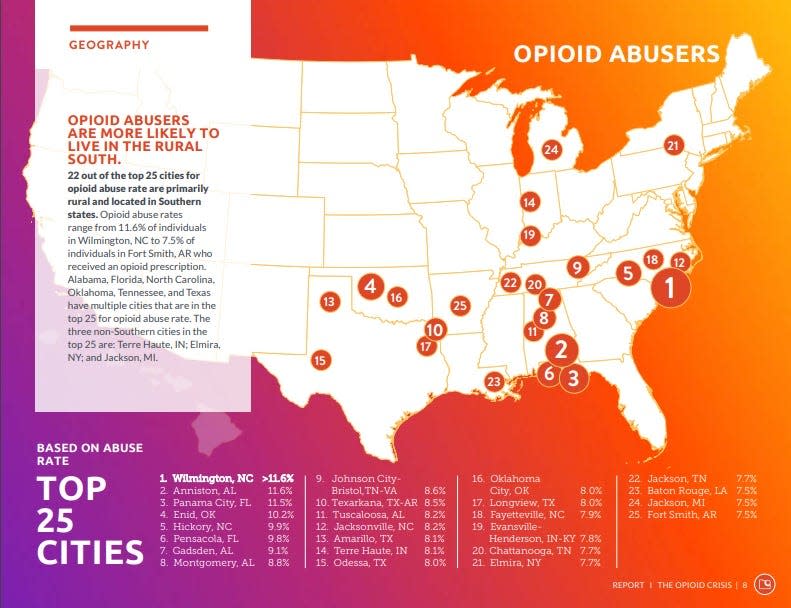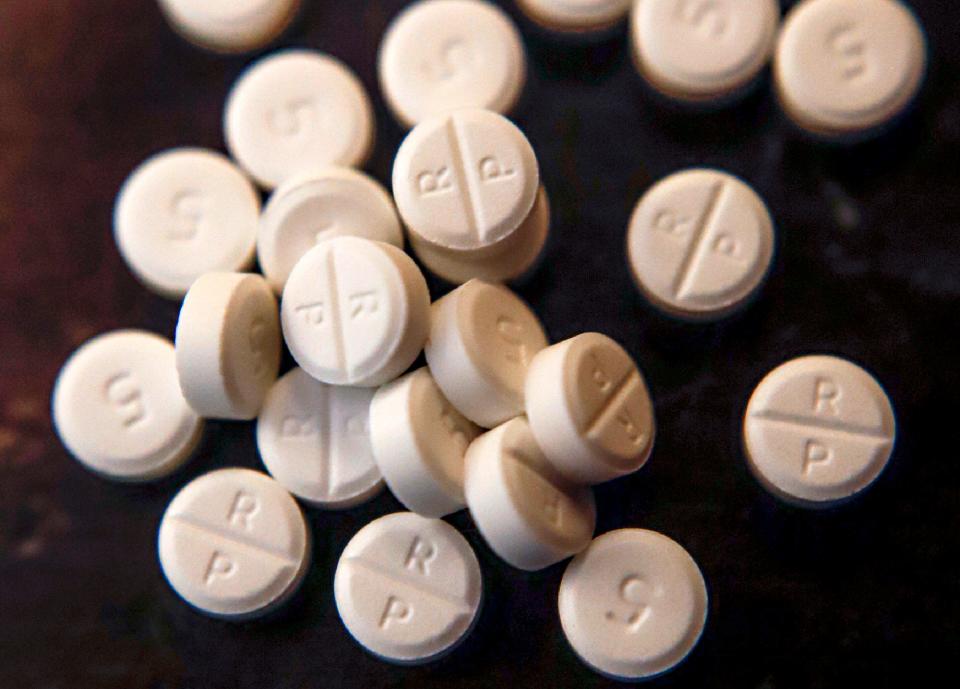Failed American drug policy is backdrop for opioid crisis. What Fayetteville and NC can do.
A University of Pennsylvania research study revealed that America has spent more than a trillion dollars on drug enforcement after 50 years.
The militaristic approach to this public health problem was a failure. We used to think all we had to do was rid ourselves of the drug cartels across the border to fix America’s illicit drug problem.
More: Troy Williams: Congress' new bill against fentanyl may miss the mark
Now, there’s a new war on drugs, and its genesis is a lot closer to home. U.S. Department of Health and Human Services officials said increased opioid prescriptions for patients in the late 1990s resulted in a national opioid epidemic.

Doctors must accept some of the blame, but most of the responsibility for the opioid crisis rests with the pharmaceutical industry. Rightfully, they should have faced legal action, and they did as states argued that these companies marketed these powerful drugs in misleading ways, downplaying the risks and embellishing the benefits.
The result was a national opioid epidemic in about every community in every state. The body count is high and still growing, with 115 people dying daily in the U.S. from opioid overdose and a 400,000-death toll in the past 20 years.
South hit hard
Researchers at Castlight Health said in 2016 that 22 of the 25 top cities for opioid abuse were in southern states. Wilmington was at the very top of the list; three other North Carolina cities made the list: Hickory, Jacksonville and Fayetteville.

The opioid epidemic is wreaking havoc on families and communities. In North Carolina, opioid deaths doubled from 2010 to 2020.
The opioid lawsuits generated huge payouts. Cumberland County is in line to receive millions from the settlement.
More: How will Cumberland County use millions of dollars from the opioid settlement?
Cumberland County Commissioner Glenn Adams said he is alarmed with the rise of opioid deaths. He believes more education needs to occur to inform individuals that marijuana, thought to be harmless, is often laced with dangerous opioids. He also emphasized the community need for additional resources for treatment.
Researchers say citizens are more likely to die from an opioid overdose than a car crash. That’s a shocking fact.

How can we help fight the opioid crisis? For one, advocate for distribution of naloxone, the leading drug treatment for opioid overdoses, in locations where overdoses occur. Naloxone essentially reverses the effects of an overdose before it turns deadly.
Also, it is vital that law enforcement officers are trained to administer the drug. I was visiting a client at the Cumberland County Detention Center.
Thumbs up for sheriff's vending machine
I noticed that Sheriff Ennis Wright had a vending machine in the waiting area allowing access to free naloxone. The Sheriff’s Office ought to be applauded for this effort.
Law enforcement couldn’t win the war on drugs 50 years ago alone, and they can’t battle the opioid epidemic alone. Significant change will only occur by collaborating with the community and merging with public health agencies, social services, and substance abuse treatment providers, all working together.
There is another side of the coin: Opioids are an indispensable treatment option for patients in pain. But even when legally dispensed, patients can become addicted. According to the American Medical Association (AMA), an estimated 3% to 19% of people who take prescription pain medications develop an addiction.
Troy Williams is a member of The Fayetteville Observer Community Advisory Board. He is a legal analyst and criminal defense investigator. He can be reached at talk2troywilliams@yahoo.com.
This article originally appeared on The Fayetteville Observer: American opioid emergency in Fayetteville lands city in top 25 for abuse

